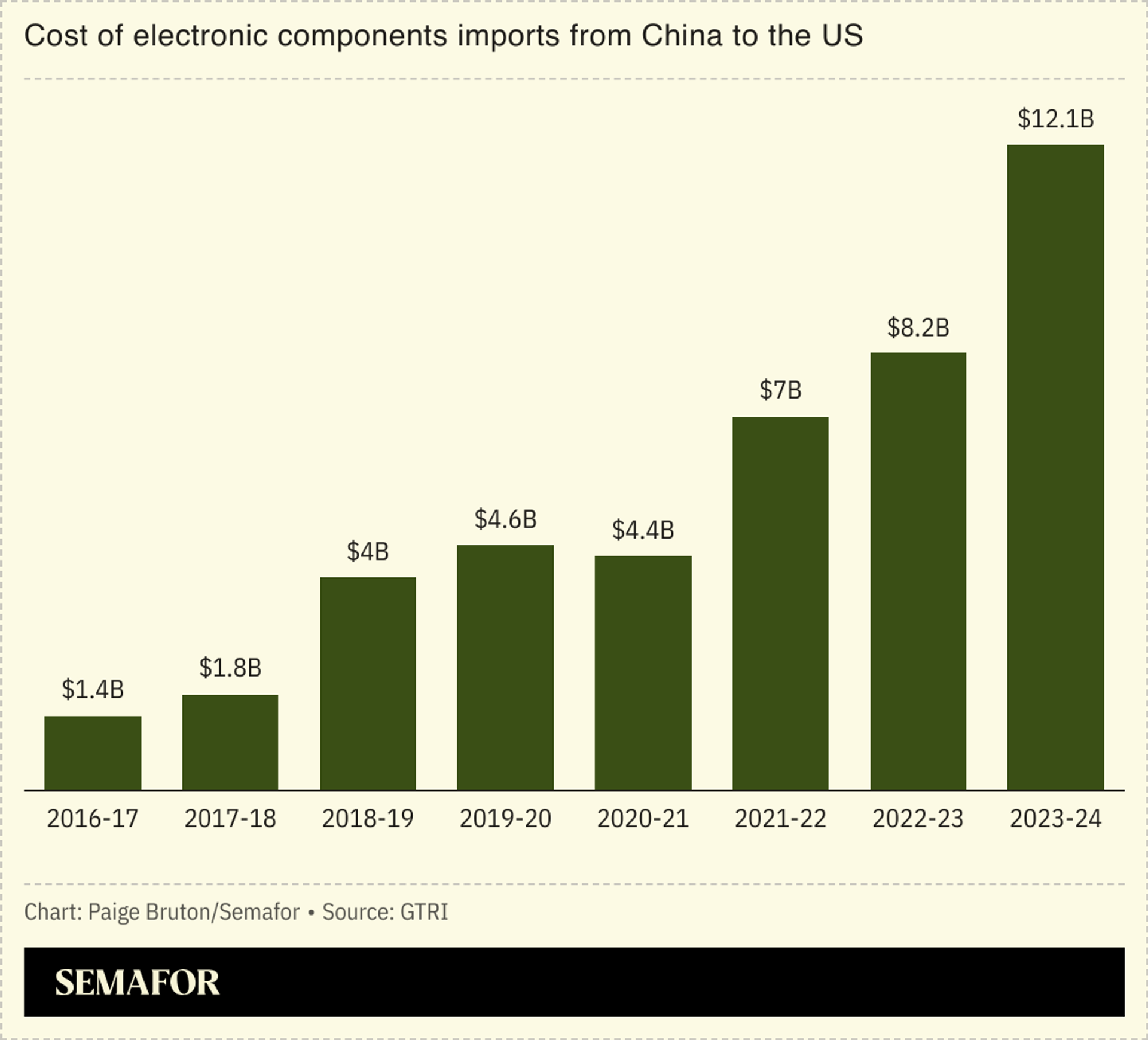The News
The US ratified sharp increases in tariffs on Chinese products Friday including a 100% duty on electric vehicles, in ongoing efforts to protect domestic industries from a flood of cheap Chinese goods.
The tariffs, which include a 50% levy on solar cells and 25% on steel, aluminum, EV batteries and key minerals, will go into effect at the end of September, Reuters reported.
Top White House economic adviser Lael Brainard told the outlet that the decision was a way to “ensure that the US EV industry diversifies away from China’s dominant supply chain.”

SIGNALS
Tariff stance on China is a key topic ahead of US election
The steep tariffs come as the US’ two presidential candidates — Kamala Harris and Donald Trump — have projected tough-on-China stances ahead of November’s election. Harris will likely adopt a similar policy position to that of the Biden administration, while Trump’s vowed to once again become a ”tariff man,” threatening even higher levies on Chinese goods if he is reelected, marks a “protectionist escalation” in rhetoric that is rattling Republicans, Semafor’s Burgess Everett reported. But overall, the difference in approach toward Beijing between the two candidates seem to have “less to do with direction and more to do with degree,” Time noted.
Global curbs on China EVs haven’t slowed sales
Along with the US, the EU and Canada have also introduced curbs on Chinese EVs — but they have had little effect on sales, Euronews reported. In August, delivery numbers for most major Chinese EV makers actually increased, signaling “a rebound in demand for the vehicles internationally and suggesting that Chinese EV makers may be able to withstand regulatory challenges posed by new tariffs,” the outlet noted. Beijing-backed electric vehicle makers are also looking for creative ways around the efforts to limit their sales, with BYD, the country’s biggest, investing in manufacturing facilities across the world to more easily sidestep the tariffs.
Tariffs an ‘irrational’ move in light of global green transition
From a climate perspective, tariffs on electric vehicles — such as those imposed by the EU — are “irrational,” the director of the Institute for European Policy-Making at Bocconi University in Milan argued in Project Syndicate. The race to develop electric cars should be seen as “desirable,” he wrote, given the bloc’s effort to position itself as leading the fight against climate change. And while an ongoing trade war between some Western countries and Beijing may justify some of the EU’s concerns, the tariffs will undoubtedly make reaching the bloc’s net-zero targets more expensive, if not jeopardize them altogether, an environment research associate wrote for Britain’s Chatham House think tank.

